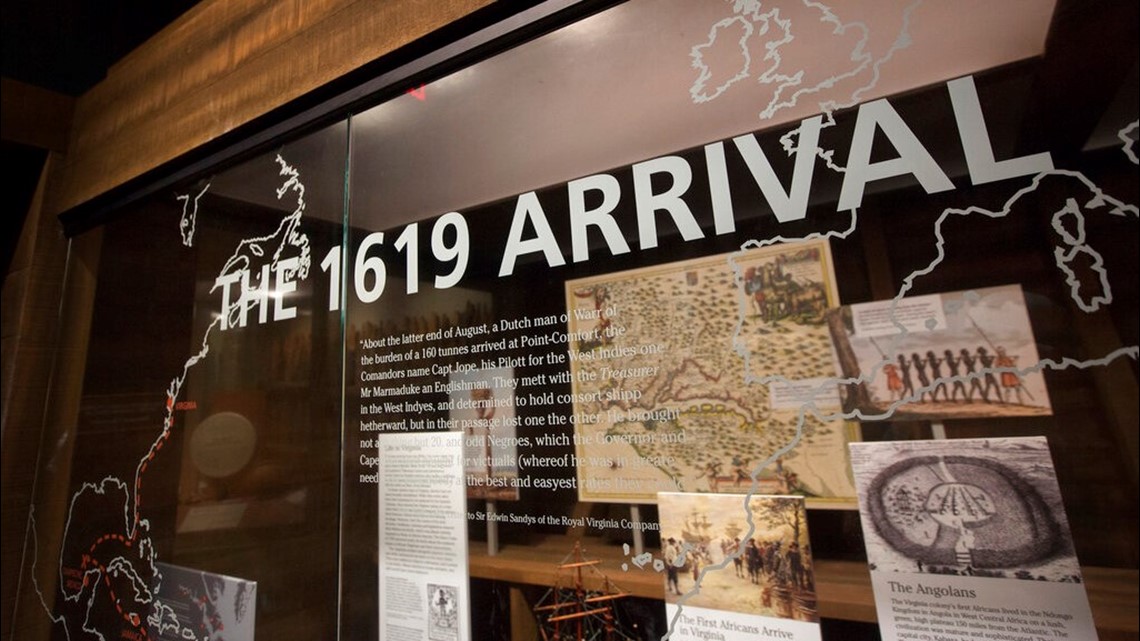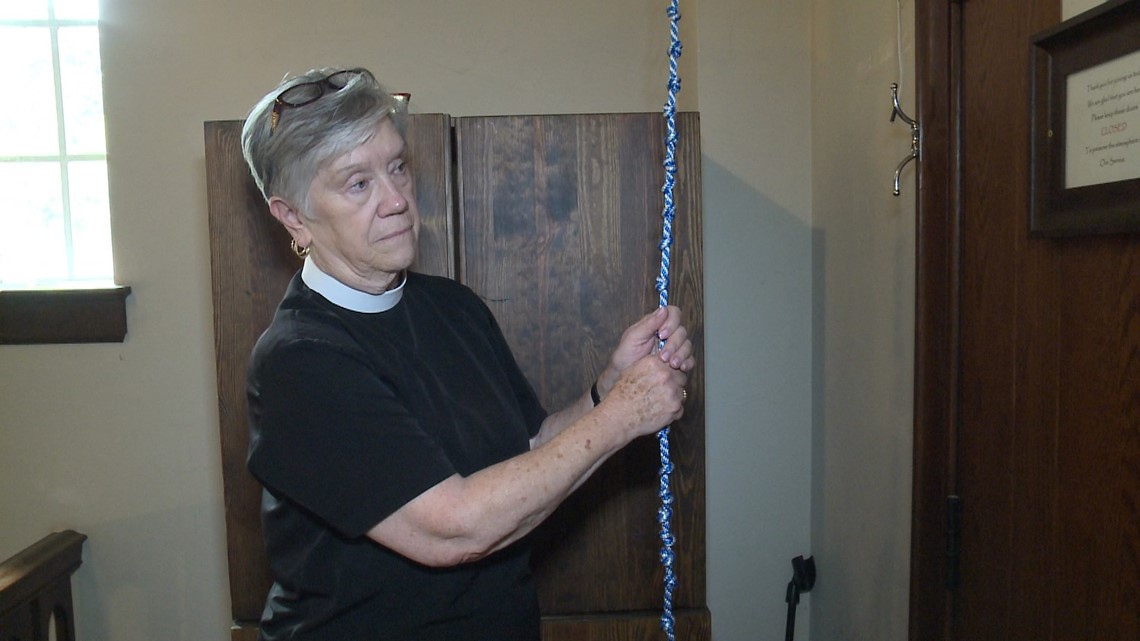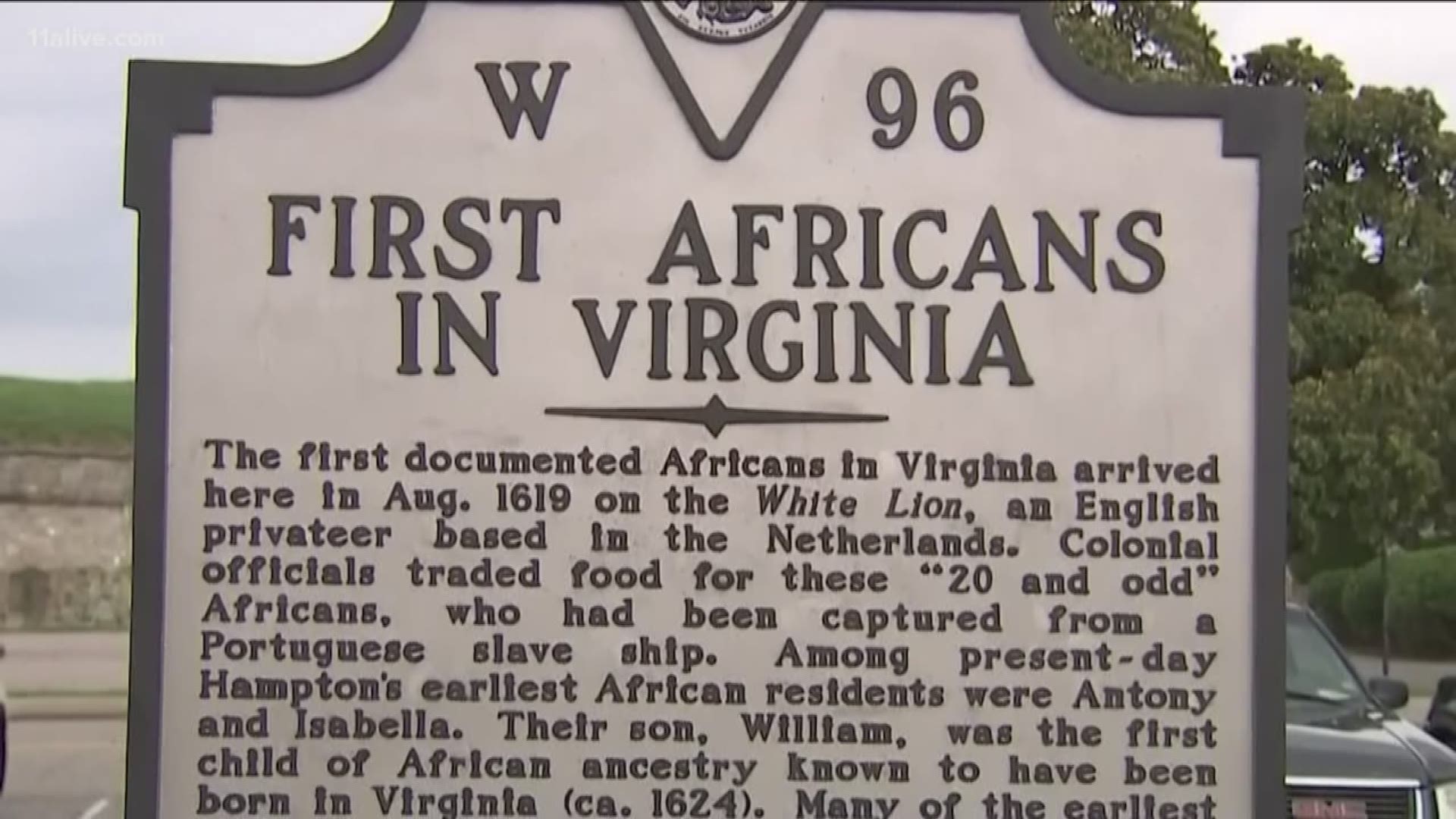ATLANTA — The sound of bells on religious grounds is not an unusual occurrence for Sunday services. But on this Sunday, their rings took one a more serious role.
On Aug. 25, 2019, churches like St.Johns Episcopal in College Park rang at 3 p.m. for a full minute. Rev. Terry Brice said it was to mark an important moment in history 400 years ago.
It marks the arrival of Africans in 1619, brought against their will, to Virginia, then a British colony. From that moment on, it ushered in the rise of slavery, a centuries-long stain on American history that has left a lasting legacy in the United States to this day.


All churches were encouraged to join in the symbolic gesture.
"Slavery is a blot on that promise," Brice explained. "So, this is a point of healing and moving forward."
Sunday's bell ringing was especially significant for St. John's Episcopal, because it happened in the middle of a service for the Guinea community. During Sunday's service before the bell ringing, a few people from the west African country were baptized. Then, the community prayed together in thanksgiving for the end of slavery.


The commemorations comes at a time of a rise in white nationalism in America, and Sunday's service at St. John's was part of a larger national push to mark the arrival of slavery in America. Here in metro Atlanta, Episcopal churches held the simultaneous bell-tolls as a moment for followers to "gather in prayer, to grieve for the atrocities and the suffering, and to ask for hope and healing." The MLK Center in Atlanta also held a ceremony of it's own in which bells tolled for four minutes - one minute for each century.
Meanwhile, in Virginia, the state's governor Ralph Northam spoke Saturday near Fort Monroe National Monument, in Hampton, along the banks of the Chesapeake Bay. It was there where those first Africans landed - just 12 years after the founding of Jamestown - and ships first traded men and women from what's now Angola for supplies from English colonists.
"We often fail to draw the connecting lines from those past events to our present day, but to move forward, that is what we must do," said Northam, a Democrat, who, in February, was caught up in scandal after photos showing him in blackface in a school yearbook surfaced.
"We know that racism and discrimination aren't locked in the past. They weren't solved with the Civil Rights Act. They didn't disappear. They merely evolved."
Material from the Associated Press appear in this report.
MORE NEWS

